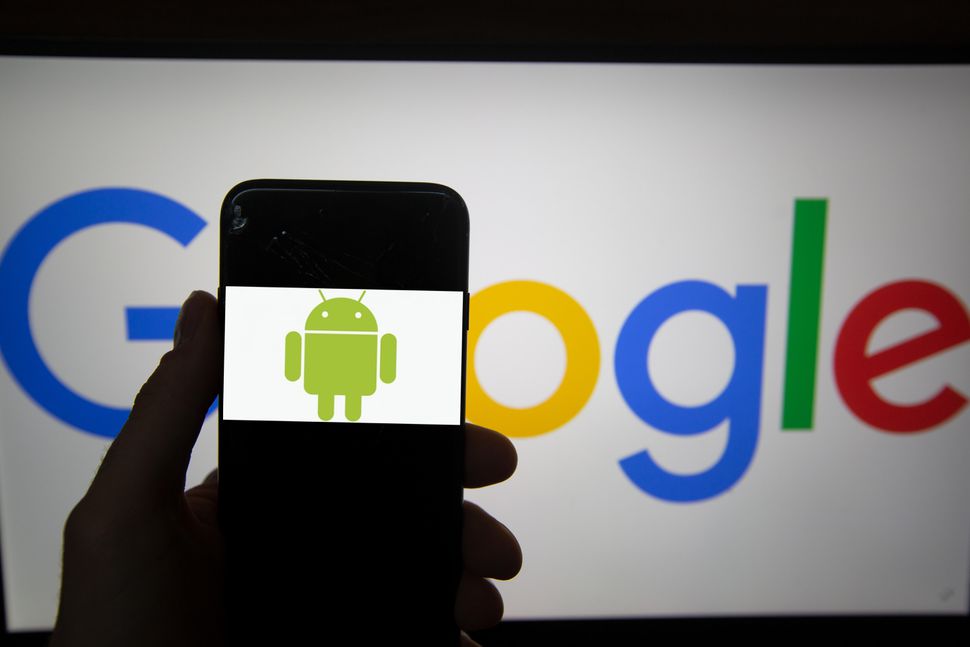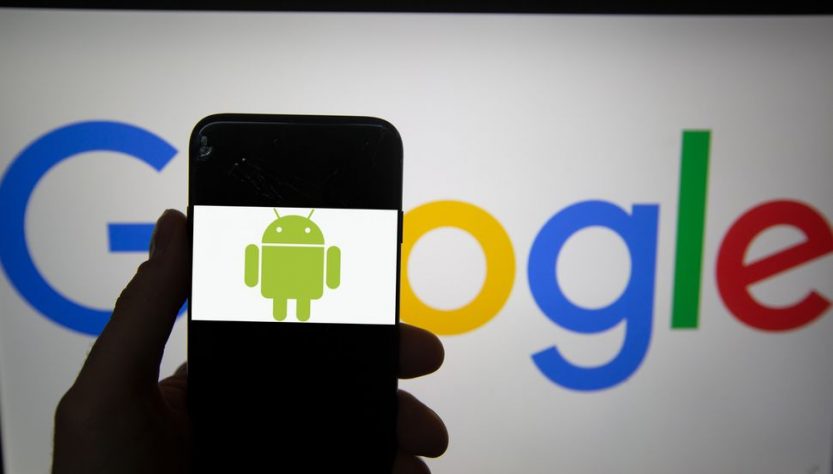Some apps might observe your exercise over time, even once you inform them to overlook the previous. And there is nothing you are able to do about it.
Roughly 17,000 Android apps gather figuring out info that creates a everlasting report of the exercise in your gadget, in response to research from the International Computer Science Institute. The information assortment seems to violate the search giant’s policy on amassing information that can be utilized to focus on customers for advertising generally, the researchers stated.
The apps can observe you by linking your Promoting ID — a singular however resettable quantity used to tailor promoting — with different identifiers in your telephone which might be tough or unimaginable to vary. These IDs are the gadget’s distinctive signatures: the MAC deal with, IMEI and Android ID. Lower than a 3rd of the apps that gather identifiers take solely the Promoting ID, as really helpful by Google’s best practices for builders.
‘Privateness disappears’ when apps gather these persistent identifiers, stated Serge Egelman, who led the analysis. He stated his staff, which reported the findings to Google in September, noticed many of the apps sending figuring out info to promoting companies, an obvious violation of Google’s insurance policies.
The corporate’s insurance policies enable builders to gather the identifiers however forbid them from combining the Promoting ID with {hardware} IDs with out express consent of the person, or from utilizing the identifiers that may’t be reset, to focus on adverts. What’s extra, Google’s finest practices for builders advocate amassing solely the Promoting ID.

The conduct suits into the tech business’s lengthy historical past of making privateness measures that web sites and app builders rapidly be taught to bypass. Adobe, as an example, was pressured to handle Flash cookies in 2011 after complaints that the snippets of software program may survive in your web browser even after you cleared all of your cookies. Comparable complaints arose in 2014 over Verizon’s and AT&T’s use of so-called ‘supercookies,’ which tracked customers throughout a number of units and could not be cleared. In 2012, Microsoft accused Google of circumventing its P3P web privacy standard, which let customers of the Web Explorer browser set their preferences for cookies. (Google countered that the usual wasn’t helpful anymore).
Knowledge collected by mobile apps has provoked even broader scrutiny due to the explosion of smartphones and tablets. In January, Facebook and Google had been each discovered to have used a developer software to circumvent Apple’s privacy rules and construct iOS apps that gather person info. Facebook’s Cambridge Analytica scandal in 2018 and different privateness controversies have sparked higher scrutiny over how information is being collected and used. (For recommendations on how one can forestall apps from taking your information, please see this story.)
Egelman’s staff, which previously discovered round 6,000 children’s apps improperly amassing information, stated Thursday that big-name apps for adults are sending everlasting identifiers to promoting companies. The apps included included Indignant Birds Basic, the favored smartphone recreation, in addition to Audiobooks by Audible and Flipboard. Clear Grasp, Battery Physician and Cheetah Keyboard, all utilities developed by Cheetah Cell, had been additionally discovered to ship everlasting data to promoting networks.
All of those apps have been put in on not less than 100 million units. Clear Grasp, a telephone utility that features antivirus and telephone optimization companies, has been put in on 1 billion units.
What Google’s doing about it
Google stated it had investigated Egelman’s report and brought motion on some apps. It declined to say what number of apps it acted on or what motion was taken, or to determine which of its insurance policies the apps had violated. The corporate stated its insurance policies enable for the gathering of {hardware} identifiers and the Android ID for some functions, like fraud detection, however not for the focusing on of adverts.
Google additionally stated it may implement its insurance policies solely when Android apps ship the identifiers to Google’s personal advert networks, reminiscent of AdMob. If the apps ship the information to exterior networks, Google says it may’t monitor them for violations.
‘We take these points very critically,’ a Google spokesperson stated in an announcement. ‘Combining Advert ID with gadget identifiers for the aim of adverts personalization is strictly forbidden. We’re continuously reviewing apps — together with these listed within the researcher’s report — and can take motion when they don’t adjust to our insurance policies.’
Google has a lot of initiatives that intention to guard person privateness and safety. In a blog post Wednesday, the corporate stated it elevated the number of abusive apps it blocked from the Google Play retailer by 55 p.c in 2018.
Representatives of Rovio, which develops the Indignant Birds sequence, and of Audible, did not reply to requests for remark.
A Cheetah Cell spokesman stated in an e mail that its apps ship a tool’s Android ID to an organization that helps it observe installations of its merchandise. The knowledge is not used for focused adverts, and the corporate complies with all related Google insurance policies and legal guidelines, the spokesman stated.
Flipboard stated it does not use the Android ID for advert focusing on.
The information assortment recognized by Egelman and his staff is just like an issue that got Uber in trouble with Apple in 2015. According to The New York Times, Apple CEO Tim Prepare dinner was livid to be taught that Uber was amassing iOS customers’ {hardware} identifiers towards Apple’s insurance policies and threatened to take away the Uber app from the App Retailer.
Egelman’s staff examined the apps as they ran on Android 6, also referred to as Marshmallow. Simply over half of all Android units run Android 6 or an earlier model of the system, in response to a Google analysis from October. The researchers configured a version of Android that allow them observe which identifiers an app collected after which ran 1000’s of apps on the modified software program.
Egelman stated that altering your Promoting ID ought to serve the identical perform as clearing out your net looking information. While you clear cookies, web sites you visited previously will not acknowledge you. That stops them from increase information about you over time.
However you’ll be able to’t reset different identifiers, just like the MAC deal with and IMEI. The MAC deal with is a singular identifier that your gadget broadcasts to web connections like Wi-Fi routers. The IMEI is an identifier on your particular gadget. Each identifiers can typically be used to stop stolen telephones from accessing a mobile community. The Android ID is one other identifier that is distinctive to every gadget. It may be reset, however provided that you run a manufacturing facility reset of your gadget.
If apps ship advert networks any of these identifiers, it will not matter what number of occasions you reset your promoting ID. They’ll nonetheless inform it is you.
Sandy Bilus, a privateness and cybersecurity lawyer at Saul Ewing Arnstein & Lehr, stated the apps may be in violation of the Normal Knowledge Safety Regulation, a European Union legislation that requires organizations to inform customers what information they gather on them, in the event that they have not spelled out what they’re amassing to EU customers.
‘It definitely may increase GDPR points,’ Bilus stated. ‘The app builders who’re amassing and utilizing this information must be cautious about that.’
Lorrie Religion Cranor, director of the CyLab Usable Privateness and Safety Laboratory at Carnegie Mellon College, stated that Google is in the very best place to crack down on apps that use {hardware} identifiers and the Android ID in ways in which violate its personal insurance policies.
The truth that builders are creating workarounds to the Promoting ID means that many individuals are resetting the identifier, Cranor stated, even when most customers are unaware of the privateness characteristic.
‘In any other case,’ she stated, ‘why would they trouble?

